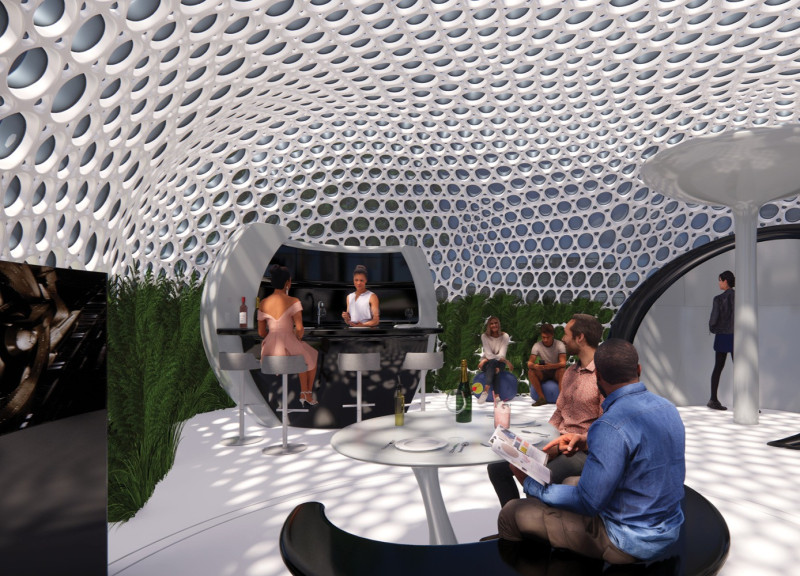5 key facts about this project
The "Amoeba Fusions" project presents an innovative architectural design situated in a densely populated urban area of New York City. This design aims to create an integrated environment that functions as a residential and commercial hub while promoting social interaction among its users. By mimicking organic forms and facilitating modularity, the project addresses contemporary urban challenges through a flexible and adaptive architectural approach.
The central concept of this project revolves around creating a structure that can grow and evolve, similar to the amoeba, thereby encapsulating the necessity for spaces that adapt to the dynamics of urban living. This adaptability manifests in a design featuring interconnected modules, which allow for various configurations based on occupancy and function. The architectural layout emphasizes connections between individual units and communal spaces, fostering collaboration and interaction.
The use of 3D printed modular cells is a significant aspect of the design, focusing on efficiency in construction and the reduction of material waste. Each module serves multiple purposes as living spaces, workspaces, and areas for communal activities. The incorporation of an atrium as a central circulation space enhances the building's connectivity, while also serving as a green area that promotes biodiversity and environmental sustainability.
Sustainability is a core principle of the "Amoeba Fusions" project. The building integrates green roofs and terraces, designed to manage water runoff and support urban ecology. The selection of materials includes 3D printed plastics and photovoltaic paint on the exterior, which not only provides energy efficiency but also minimizes the environmental impact of the construction. Thermo-responsive insulated glazing is used for climate control, ensuring that natural light and temperature regulation coexist within the design.
A defining characteristic of this project is its emphasis on community integration. The public plazas surrounding the modules serve as versatile spaces catering to art installations, events, and commerce. These areas are deliberately designed to encourage social interaction and communal activities, enhancing the quality of life for residents and visitors alike.
In examining the unique design approaches of "Amoeba Fusions," it is evident that the project effectively combines innovation in architectural forms with practical urban solutions. By prioritizing modularity, sustainability, and community engagement, this project distinguishes itself within the landscape of urban architectural designs.
To explore the intricate details of this project further, including architectural plans, architectural sections, and a deeper understanding of the architectural ideas behind "Amoeba Fusions," it is encouraged to review the full project presentation.





















































